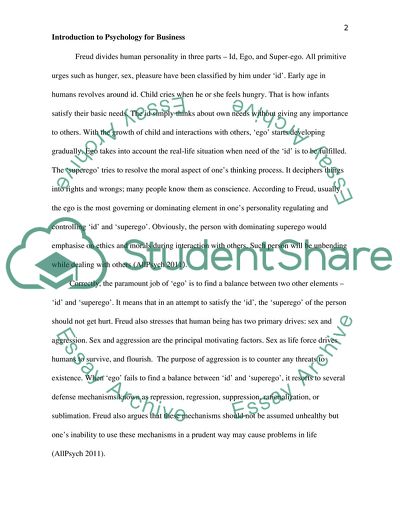Cite this document
(Introduction to Psychology for Business Essay Example | Topics and Well Written Essays - 1250 words, n.d.)
Introduction to Psychology for Business Essay Example | Topics and Well Written Essays - 1250 words. https://studentshare.org/psychology/1810054-introduction-to-psychology-for-business
Introduction to Psychology for Business Essay Example | Topics and Well Written Essays - 1250 words. https://studentshare.org/psychology/1810054-introduction-to-psychology-for-business
(Introduction to Psychology for Business Essay Example | Topics and Well Written Essays - 1250 Words)
Introduction to Psychology for Business Essay Example | Topics and Well Written Essays - 1250 Words. https://studentshare.org/psychology/1810054-introduction-to-psychology-for-business.
Introduction to Psychology for Business Essay Example | Topics and Well Written Essays - 1250 Words. https://studentshare.org/psychology/1810054-introduction-to-psychology-for-business.
“Introduction to Psychology for Business Essay Example | Topics and Well Written Essays - 1250 Words”. https://studentshare.org/psychology/1810054-introduction-to-psychology-for-business.


